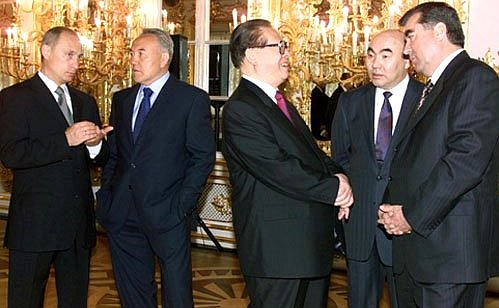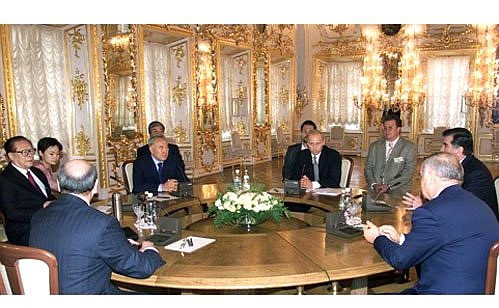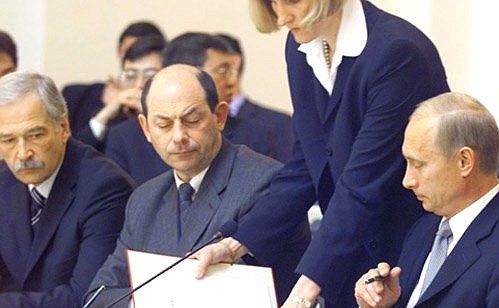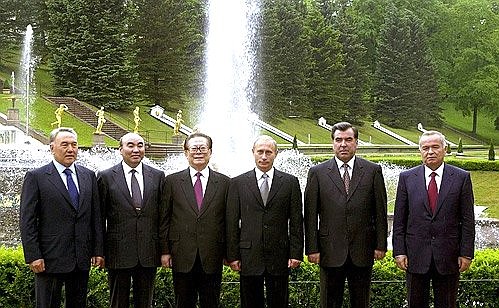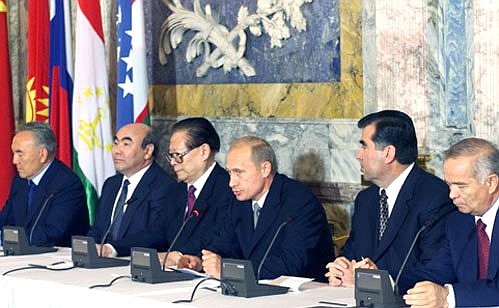The Shanghai Cooperation Organisation (SCO) summit started with a restricted meeting of the Presidents of Russia, China, Kazakhstan, Kyrgyzstan, Tajikistan and Uzbekistan at Petrodvorets (Peter’s Palace). After that, an expanded meeting of the SCO countries’ leaders was held at the Mramorny (Marble) Palace in St Petersburg.
At the summit, Vladimir Putin proposed that the SCO countries step up their humanitarian cooperation, carry out joint environmental measures and implement education and health care projects.
Speaking about the prospects for the organisation’s further activities, the Russian President pointed to the need to promote the countries’ practical cooperation in combating illegal drug trafficking and to step up efforts to implement the June 2001 Shanghai Convention against Terrorism, Separatism and Extremism.
The summit resulted in the signing of the Shanghai Cooperation Organisation’s Charter, a Declaration of the Heads of State and an Agreement on a Regional Anti-Terrorist Structure (RATS). Mr Putin praised the signing of these documents as a qualitative change in SCO countries’ cooperation. He said that the administrative work in establishing the Shanghai Cooperation Organisation as an international body had been completed and the formation of SCO institutions had entered a key phase. Russia will spare no effort to make it a dynamic and viable organisation, the Russian President stressed in his statement following the summit.
The SCO Charter outlined the basic aims and tasks of the organisation and determined the mechanisms allowing the concerned ministries and departments to effectively coordinate their work. According to Mr Putin, the signing of the Agreement on a Regional Anti-Terrorist Structure (RATS), which has become a SCO permanent body, is a contribution to the global counterterrorism strategy.
